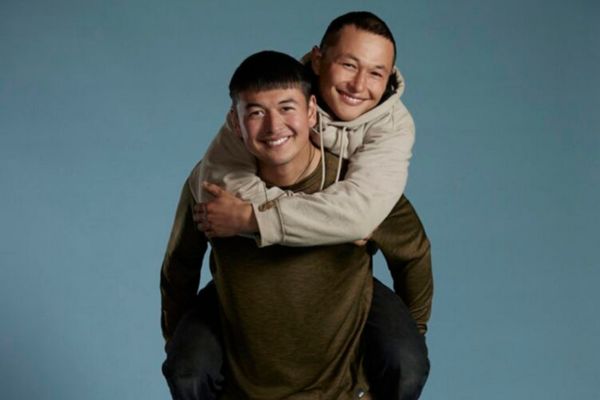
- Details
- By Kaili Berg
A pair of Inupiaq brothers from Nome, Alaska, Oliver and Wilson Hoogendorn, have won a grand prize of $500,000 in the first season of a national reality TV show series competition called “Race to Survive: Alaska."
The episode aired on USA Network on Monday, June 5. The show kicked off in April showcasing eight different two-person teams and six races that took place across uncharted terrain in Ketchikan, Kodiak, and Cordova, Alaska. The brothers competed over the summer across the 50-day survival course, traversing more than 100 miles and ultimately became the first winners of the show.
The brothers faced tremendous challenges, including terrain and wilderness, but preserved and brought the win home to Nome, where they were born and raised. Teams were only allowed to use what they could carry on their back and used their wilderness skills to make it through the race.
Oliver works as a commercial fisherman and Wilson works as a gold diver. The two were the first Native Alaskan team to summit Denali in 13 days and skied down the highest peak in North America in one day. They have honed their wilderness skills their whole lives hunting moose, seals, and whales using traditional indigenous methods.
In an interview with TV Insider, the brothers said they plan to use their winnings to give back to the Nome community — providing lumber, uniforms for the cross-country team, as well as building houses and donating to a food bank.
More Stories Like This
Tunica-Biloxi Tribe of Louisiana Celebrating Its 26th Annual PowwowHere's What's Going On In Indian Country, May 17th —May 23rd
Q&A: Diné Designer and Entrepreneur Amy Denet Deal on Being Honored by CNN
Forge Project Awards $150,000 to Native American Artists
Q&A: Ojibwe Designer Lucie Skjefte on New Collaboration with Minnetonka Footwear
These stories must be heard.
This May, we are highlighting our coverage of Indian boarding schools and their generational impact on Native families and Native communities. Giving survivors of boarding schools and their descendants the opportunity to share their stories is an important step toward healing — not just because they are speaking, but because they are being heard. Their stories must be heard. Help our efforts to make sure Native stories and Native voices are heard in 2024. Please consider a recurring donation to help fund our ongoing coverage of Indian boarding schools. Donate to Native News Online today and support independent Indigenous-centered journalism. Thank you.

